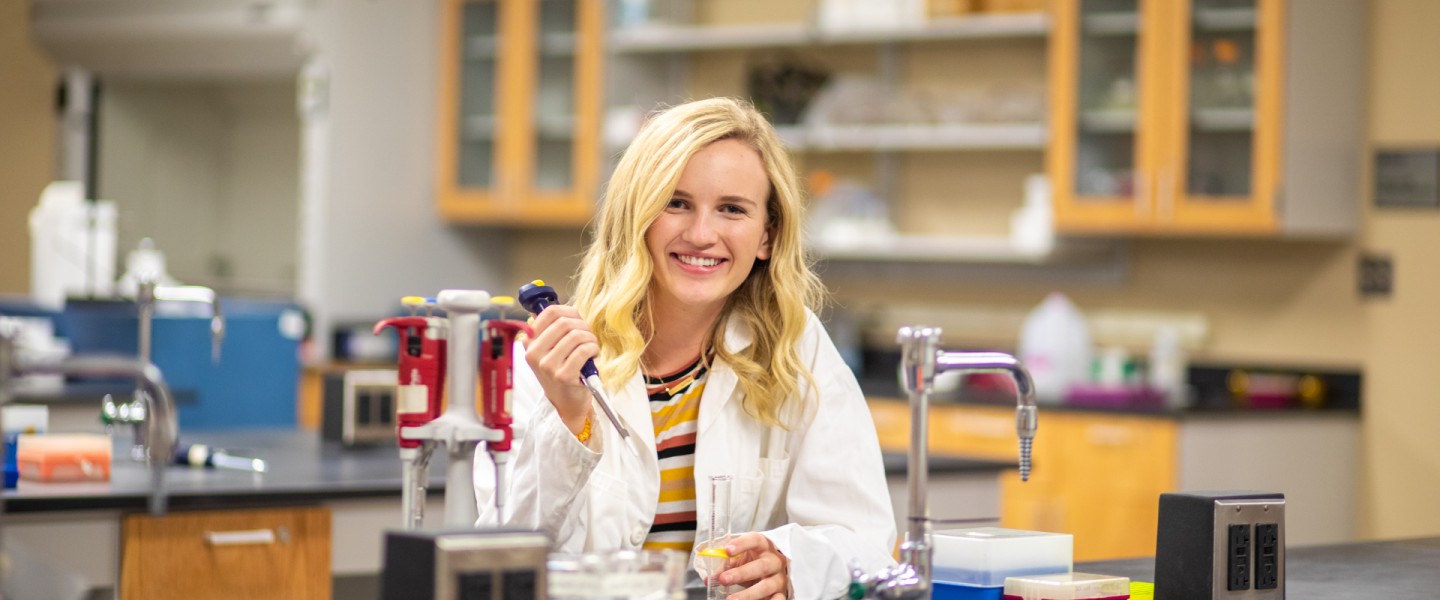Do you love science? Do you find yourself endlessly fascinated by the natural world and all living things? If so, you’re a great candidate for a biology degree.
Perhaps you’ve been considering this educational path for a while but find yourself wondering, “What can I do with a biology degree?” A bachelor of science (BS) degree in biology is a great undergraduate degree that can help prepare you for a future that includes lab work, research, teaching, and graduate or medical school, among many other career paths. The biology field is broad, and the industry is diverse.
Here are five exciting career options that answer the question: “What can I do with a bachelor’s in biology?”
1. Microbiologist
Your B.S. can qualify you for a variety of entry-level microbiologist jobs, according to the Bureau of Labor Statics (BLS). In this role, you’d study microorganisms “such as bacteria, viruses, algae, fungi, and some types of parasites” in an effort to understand how they live, grow, and interact with their environments.
You might even focus on organisms that cause disease to humans or animals, or those responsible for environmental or agricultural damage. The employment of microbiologists is expected to grow 8 percent by 2026, as more scientists are needed to monitor environmental conditions to ensure public health and safety.
2. Environmental Scientist
Another great bachelor’s in biology career opportunity is as an environmental scientist or specialist. Also called environmental conservationists, these professionals use their knowledge of the natural sciences to protect the environment and human health. In this role, you might clean up polluted areas, work with the industry to reduce waste, or advise policymakers. Employment of environmental scientists is projected to grow 11 percent by 2026, faster than the average for all occupations. The BLS also notes, “heightened public interest in the hazards facing the environment, as well as increasing demands placed on the environment by population growth, are expected to spur demand for environmental scientists and specialists.”
3. Genetic Counselor
These scientists assess the genetic makeup of individuals and counsel them about the risk of transmitting a genetic disease or disability to their children. They help families make informed decisions about inherited conditions and birth defects. Genetic counselors also work with adults who are concerned about the chances of developing symptoms of genetic disorders later in life. Additionally, this important career can assess the likelihood of various outcomes based on the genetic predisposition of the patients. An example of this is women with inherited cases of breast cancer associated with mutations in two genes: BRCA1 and BRCA2, providing knowledge and power to patients.
4. Biological Lab Assistant/Technician
These technicians assist biological and medical scientists in laboratories. They may be responsible for:
- Setting up, operating, and maintaining laboratory instruments and equipment
- Monitoring experiments
- Making observations
- Calculating and recording results
- Analyzing organic substances, such as blood, food, and drugs
Many biology graduates find technician positions with researchers at medical schools, government agencies, nonprofit research centers, or pharmaceutical/biotechnology firms, reports The Balance Careers. Employment of biological technicians is expected to grow 10 percent from 2016 to 2026, faster than the average for all occupations. According to the BLS, “continued growth in biotechnology and medical research is expected to increase demand for these workers.”
5. High School Science Teacher
Your undergraduate degree in biology paired with a secondary education certification qualifies you to teach biology to middle and high school students. You’ll enjoy a rewarding career creating meaningful coursework while inspiring younger generations of students to explore their passion for science.
A B.S. in Biology Can Be a Stepping Stone
Should you decide to follow your B.S. in Biology with a master’s and/or doctoral degree, you can move into a career in a number of fields, including:
- Physician
- Physician’s assistant
- Physical therapist
- Dentist
- Veterinarian
- Chiropractor
- Osteopathic medicine practitioner
A biology degree can lead to many different career opportunities, as unique as you are. If you are looking to pursue a biology degree, look no further than University of the Cumberlands. With professors who have years of real-world experience in the same field they are teaching, very competitive tuition rates, and a sense of honor in everything we do, why look any further? See what UC can do for you by contacting an admissions counselor for more information.

